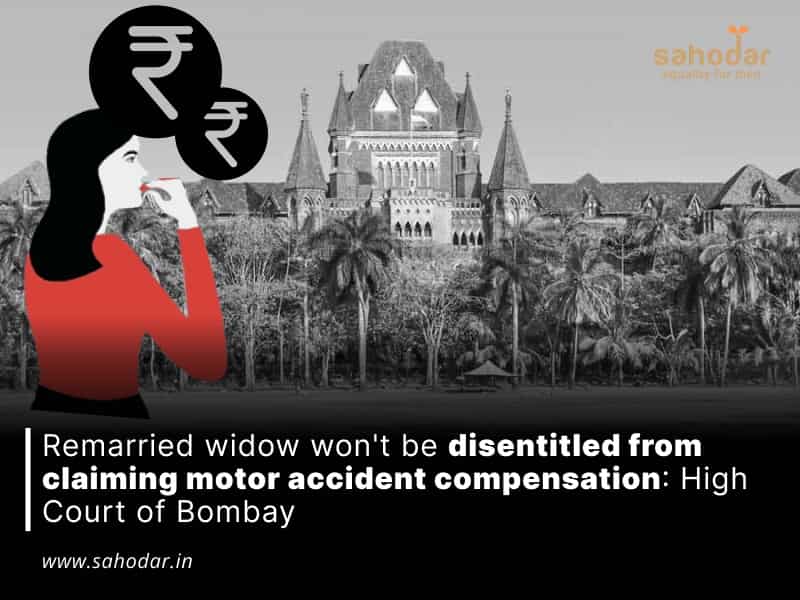The recent judgment by the Bombay High Court stated that a widow who remarries is not disqualified from receiving compensation for the loss of her deceased husband in a motor accident. Justice SG Dige stated that remarriage cannot be considered a hindrance against receiving compensation for the loss of her husband. The judge further commented that it is unfair to expect the widow to remain unmarried for the rest of her life or until she receives the compensation. The widow’s entitlement to compensation is justified, considering her age and her marital status at the time of the accident. The judgment further added that remarriage after the death of the husband cannot be a taboo for receiving compensation.
According to the court, the DV Act aims to provide women who are victims of domestic violence with effective protection. Therefore, the definition of “aggrieved persons” should be interpreted as broadly as possible. The court further stated that the term “woman” in section 2(a) of the Act is no longer restricted to the traditional binary gender system, but also encompasses transgender individuals who have undergone sex reassignment surgery and identify as female. As per the court’s statement, “woman” includes those transgender individuals who have changed their gender in accordance with their gender identity.
The insurance company argued that the widow of the deceased should not be granted compensation because she had remarried after his death. Moreover, the company claimed that since the permit for the rickshaw was only valid for Thane District, the driver breached the terms and conditions of the permit by operating outside that district.
The court held that the breach of terms of the insurance policy is different from the breach of terms of the permit issued by the RTO authority. The court further explained that the permit being only for Thane District does not prohibit the driver from operating the rickshaw outside of that district. Additionally, the court pointed out that the insurance company failed to present any witnesses to support its argument that taking the rickshaw outside Thane District constituted a breach of the permit or the terms of the insurance policy.
The High Court considered the case of a widow who remarried after her husband’s death in a motor accident, and the insurance company’s argument that she was not entitled to compensation. The Court clarified that breach of the terms of a permit issued by the RTO authority is different from breach of an insurance policy. The Court noted that the deceased’s wife was only 19 years old at the time of the accident and that her remarriage during the pendency of the claim petition does not disentitle her to compensation. The Court also pointed out that any legal representative of the deceased can seek compensation under section 166 of the Motor Vehicles Act. As a result, the widow was entitled to compensation as the legal representative of her deceased husband. The Court awarded the claimants Rs. 40,000 each for consortium, Rs. 15,000 for funeral expenses, and Rs. 15,000 for loss of estate. The Court also awarded an additional Rs. 80,000 to the claimants, in addition to the Rs. 70,000 already awarded by the tribunal for funeral expenses, loss of love and affection, and consortium.
Source: https://www.livelaw.in/news-updates/bombay-high-court-motor-accident-compensation-widow-remarriage-225295

